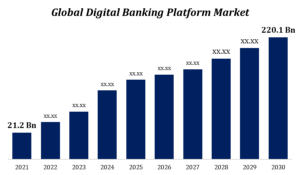The Rise of Robo-Advisors: What Investors Need to Know
The financial landscape is undergoing a significant transformation, and at the forefront of this change are robo-advisors—automated platforms that provide financial planning services with minimal human intervention. In recent years, these digital advisors have gained popularity among a wide range of investors, offering a convenient, low-cost alternative to traditional financial advisory services. But what exactly are robo-advisors, and what should investors know about this rising trend?
What Are Robo-Advisors?
Robo-advisors are online platforms that use algorithms and software to provide automated investment management services. By leveraging technology, they offer a streamlined approach to portfolio management, typically requiring investors to answer a series of questions about their financial goals, risk tolerance, and time horizon. Based on these inputs, the robo-advisor creates a personalized investment portfolio, which is then automatically managed and rebalanced over time.
The Growth of Robo-Advisors: Why Now?
The rise of robo-advisors can be attributed to several factors:
- Advances in Technology: The increasing sophistication of algorithms, coupled with the widespread availability of high-speed internet and cloud computing, has made it possible to offer automated financial services at scale.
- Changing Investor Demographics: Millennials and younger investors, who are digital natives, are more comfortable using technology for financial services. They value convenience, transparency, and low costs, all of which are hallmarks of robo-advisors.
- Cost Efficiency: Traditional financial advisors typically charge fees ranging from 1% to 2% of assets under management (AUM). In contrast, robo-advisors offer their services at a fraction of the cost, often between 0.25% to 0.50% of AUM. This cost efficiency is particularly appealing to investors with smaller portfolios.
- Increased Accessibility: Robo-advisors have democratized access to financial planning and investment management, making it easier for individuals with lower net worth to receive professional-grade financial advice.
How Do Robo-Advisors Work?
Robo-advisors follow a systematic approach to portfolio management:
- Initial Assessment: When an investor signs up, the robo-advisor typically asks a series of questions to determine their financial goals, risk tolerance, investment preferences, and time horizon.
- Portfolio Creation: Based on the investor’s profile, the robo-advisor uses algorithms to construct a diversified portfolio, often consisting of exchange-traded funds (ETFs) that align with the investor’s goals.
- Automated Management: Once the portfolio is set up, the robo-advisor continuously monitors and rebalances it to maintain the desired asset allocation. This process is fully automated, ensuring that the portfolio remains aligned with the investor’s goals without the need for manual intervention.
- Tax Optimization: Many robo-advisors offer tax-loss harvesting, a strategy that involves selling securities at a loss to offset capital gains, thereby reducing the investor’s tax liability.
Benefits of Robo-Advisors
Robo-advisors offer several advantages that make them an attractive option for many investors:
- Low Fees: Robo-advisors typically charge lower fees compared to traditional financial advisors, making them cost-effective for investors who want professional management without the high costs.
- Accessibility: With low minimum investment requirements, robo-advisors are accessible to a broader audience, including those who may not have substantial assets to invest.
- Convenience: Robo-advisors provide a hands-off investment experience. Once the initial setup is complete, investors can sit back and let the platform handle the day-to-day management of their portfolio.
- Transparency: Robo-advisors are generally transparent about their fees, investment strategies, and performance, allowing investors to make informed decisions.
- Consistency: The algorithmic approach of robo-advisors eliminates the emotional biases that can affect human decision-making, leading to more consistent investment outcomes.
Considerations and Limitations
While robo-advisors offer many benefits, there are some considerations investors should keep in mind:
- Limited Personalization: Although robo-advisors provide customized portfolios based on an investor’s profile, the level of personalization is limited compared to working with a human advisor who can offer tailored advice based on an in-depth understanding of an investor’s unique situation.
- Lack of Human Interaction: For investors who value a personal relationship with their financial advisor or need complex financial planning, robo-advisors may fall short.
- Market Volatility: During periods of market turbulence, some investors may prefer the reassurance of speaking with a human advisor. Robo-advisors, being algorithm-driven, lack the ability to provide emotional support or personalized advice during such times.
- Complex Financial Needs: Investors with complex financial situations, such as estate planning, tax strategies, or business ownership, may find that robo-advisors are not equipped to handle these complexities.
The Future of Robo-Advisors
As technology continues to advance, robo-advisors are likely to become even more sophisticated, offering enhanced features such as more advanced tax optimization, better integration with other financial services, and improved user experiences. Additionally, hybrid models that combine robo-advisory services with access to human advisors are becoming increasingly popular, offering the best of both worlds.
Conclusion
Robo-advisors represent a significant shift in the way financial services are delivered, making professional investment management more accessible, affordable, and convenient. While they may not be suitable for every investor, particularly those with complex financial needs or a preference for human interaction, they offer a compelling option for many, particularly younger, tech-savvy individuals and those with smaller portfolios.
As the financial landscape continues to evolve, robo-advisors are set to play an increasingly important role in shaping the future of investment management. For investors, understanding the benefits and limitations of these digital platforms is crucial in making informed decisions about their financial future.


































